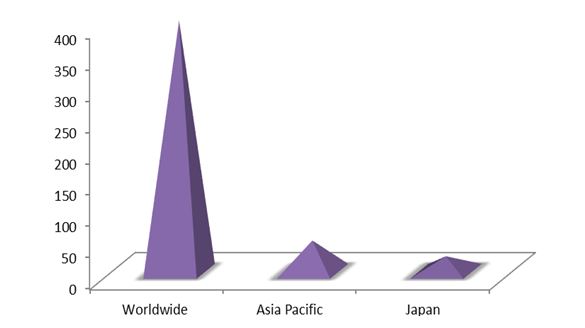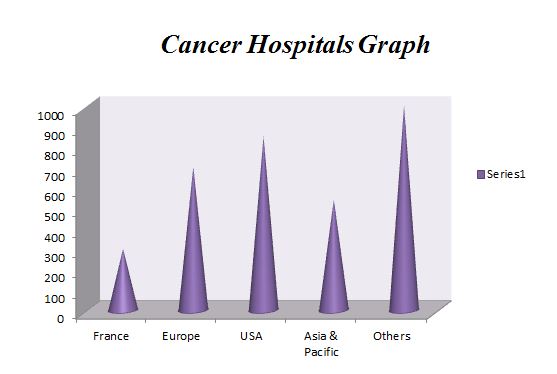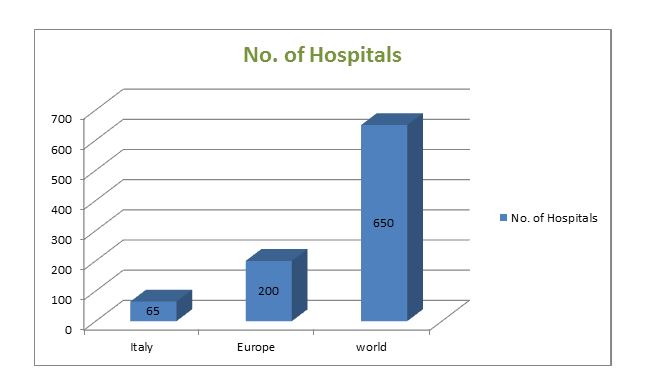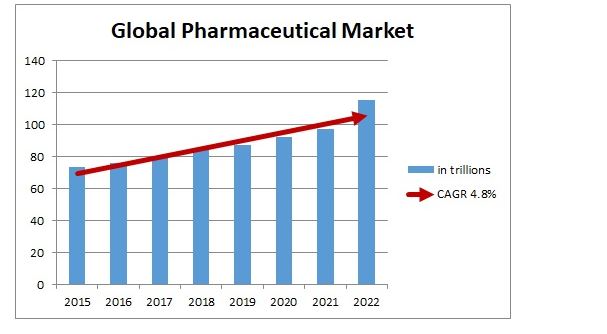Theme: Innovative approaches and research in Cancer
Frontiers In Cancer 2020
"5th World Congress on Frontiers in Cancer Research during August 24- 25, 2020, kyoto, Japan.
Frontiers in Cancer Research in Cancer organizes towards keeping an eye on fundamental issues just as future techniques of Cancer. This will be the greatest and most promising all-inclusive social affair where the program joins Clinical Oncologists, Registered Nurses, Nurse experts and the entire therapeutic gathering required in patient consideration, researchers, capable, early calling individuals who wish to learn benchmarks of tumor immunology and immunotherapy well as pioneers will come to inspect on various pieces of difficulties, dangers Wildernesses in Cancer Research will oversee, Cancer Prevention , Diagnosis, and Treatment of diseases of the Organ-related Cancers and its imaginative methodologies.
Frontiers in Cancer Research will likewise give the three days of discussion on strategies and frameworks related to organization and quality difference in Cancer and notwithstanding explore the new considerations and thoughts on overall scale and the subjects fuse lung danger, chest sickness, bone tumor, leukemia, blood disease, cervical tumor, colon-rectum malady, , careful tumor, Prostate Growth, thyroid harm.
This year around 564,800 Americans are required to pass on of malignant growth in excess of 1,500 people every day Disease is the subsequent driving explanation behind death in the US.
One of every four going's in the US is from development. Since 1990, there have been around 5 million danger passings. Lung Cancer, Blood Cancer, Breast Cancer are most basic Cancers in Austraila.
According to 2012 bits of knowledge around 14.1 million cases are passed on and 8.2 million passings are represented. Lung, Liver, Stomach and gut malignancies cause the most broadly perceived passings among the worldwide that records practically half of all the disease passings. Around 70% additions in the cases are not strange all through the accompanying 2 decades. In guys 5 most ordinary destinations of threat are perceived in 2012 were lung, prostate, colorectal and liver maladies. In females 5 most shared regions investigated were chest, lung and Stomach tumor.
ConferenceSeries LLC has different Cancer Gatherings, Cancer meeting, overall development gathering, European Oncology Conferences, Surgical oncology like skin tumor gathering, chest danger meeting, liver harm gathering, Lung Cancer social events, and Frontiers in malignant growth Research Conferences (Frontiers in Cancer 2020)where learning trade occurs through common contentions, round table talks, see presentations, workshops, symposia and introductions and which gets potential results for treating the illnesses with new time, advancement and research.
Why to attend?
With people from around the world focused on getting some answers concerning Oncology and Cancer; this is your most obvious opportunity to accomplish the greatest cluster of individuals from the Cancer people group, Oncology Society, European Oncology Conferences. Coordinate presentations, disperse information, meet with present and potential specialists, make a sprinkle with new pharmaceutical progressions, and get name affirmation at this three day event. Broadly acclaimed speakers, the most recent systems, changes, and the most a la mode invigorates in Oncology are indications of this meeting.
Target Audience:
· Oncologists
· Radiologists
· Pathologists
· Students
· Oncology Associations & Societies
· Business Entrepreneurs
· Hematologists
· Academicians
· Research Scholars
· Software Developing Companies
· Medical Devices Companies
· Biomedical Companies
· Biotechnology Companies
· Data Management Companies
Cancer treatment: There are different types of cancer treatments in the world. some of them are Raditation Therapy, chemotherapy, Hromone Therapy, Immunotherapy and it can also be treated by surgery and diagonsis.
Track 2: Biomarkers in Cancer Research:
A malignancy biomarker alludes to a substance or procedure that is characteristic of the nearness of disease in the body. A biomarker might be an atom emitted by a tumor or a particular reaction of the body to the nearness of malignant growth. Hereditary, epigenetic, proteomic, glycomic, and imaging biomarkers can be utilized for malignancy finding, guess, and the study of disease transmission. In a perfect world, such biomarkers can be tested in non-intrusively gathered biofluids like blood or serum.
Track 3:Cancer awareness and survival :
Cancer awareness programs are very much useful to save people at early stages and help them in taking precations before only. Expanded malignant growth mindfulness improves survival. Social and Economic Impact likewise hurt the nature of disease care. Individuals who are not monetarily not solid don't get great treatment. Malignant growth side effect mindfulness and disease survival are related. Disease Awareness Program is led by government and numerous associations to acquire the mindfulness the general population to diminish the malignancy levels and towards all oncology programs. Crusades should concentrate on improving mindfulness about malignant growth side effects, particularly in financially denied territories.
Track 4: Alternative Medicine in Cancer Research
There are different types of alternative medicines to treat cancer for example Herbal medicines, homeopathic and therapies etc. Among all the Herbal medicines are the best way to cure Cancer and those medicines are prepared from plants or mixtures of plant extracts.
Alternative cancer treatments are elective malignant growth medicines may not assume an immediate job in relieving your disease, yet they may enable you to adapt to signs and side effects brought about by disease and malignant growth medications. Regular signs and manifestations, for example, uneasiness, exhaustion, queasiness and spewing, torment, trouble dozing, and stress might be decreased by elective medications.
Track 5: Surgical Oncology
Surgery is used to diagnose stage and treat cancer, and certain cancer-related symptoms. It is the branch of surgery applied to oncology; it focuses on the surgical management of tumors, especially cancerous tumors. Surgical oncology is a specialized area of oncology that engages surgeons in the cure and management of cancer. Whether a patient is a candidate for surgery depends on factors such as the type, size, location, grade and stage of the tumor, as well as general health factors such as age, physical fitness and other medical comorbidities. For many patients, surgery will be combined with other cancer treatments such as chemotherapy, radiation therapy or hormone therapy.
Track 6: Radiation Oncology
Radiation Oncology includes all parts of research that impacts on the treatment of disease utilizing radiation. Radiation can be given as a healing methodology, either alone or in mix with medical procedure as well as chemotherapy. It might likewise be utilized palliative, to diminish indications in patients with hopeless malignant growths. The Radiotherapy/radiation treatment is comprehensively divided into Teleradiotherapy, Brachy-radiotherapy and Metabolic Radiotherapy. Atomic prescription is a part of medication that utilizes radiation to give data about the working of an individual's particular organs or to treat malady. Restorative imaging is the procedure and procedure of making visual portrayals of the inside of a body for clinical investigation and therapeutic intercession, just as visual portrayal of the capacity of a few organs or tissues.
Track 7: Cancer & Stem Cell Therapy
Stem-cell therapy is the use of stem cells to treat or prevent a disease or condition. Stem Cells and Tumors cancer cells also have the characteristic which is also associated with normal stems cells. Stem Cell Therapy is using to prevent the disease. Stems cells transplant is used to treatment of cancer like leukemia, multiple myeloma & lymphoma. Cord Blood Stem and Cancer cord blood contains hematopoietic (blood) stem cell. They have long been used in stem cell treatments for leukemia, blood and bone marrow disorders when chemotherapy is used.
• Cancer Stem Cells
• Stem Cells and Tumors
• Stem Cell Transplantation
• Bone Marrow Transplantation
• Cord Blood Stem Cells and Cancer
• Stem Cell Research
Malignancy Nursing Practice is a month to month peer-evaluated nursing diary which covers the act of oncology nursing. It additionally distributes news, news examination, and supposition sections on points applicable to oncology medical caretakers.
Cancer is the name given to a collection of related diseases. In all types of cancer, some of the body’s cells begin to divide without stopping and spread into surrounding tissues. Cancer can start almost anywhere in the human body, which is made up of trillions of cells. Normally, human cells grow and divide to form new cells as the body needs them. When cells grow old or become damaged, they die, and new cells take their place. When cancer develops, however, this orderly process breaks down. As cells become more and more abnormal, old or damaged cells survive when they should die, and new cells form when they are not needed. These extra cells can divide without stopping and may form growths called tumors.
Importance and Scope
2019 Global Cancer will be the best platform for all the scientist, radiologists, oncologists, research scholars, students who are working in this field to exchange their knowledge related to Cancer and oncology. This international event is an effort to find an alternative for invasive imaging technique against cancer like Liver Cancer, Breast Cancer, Lung Cancer, Kidney Cancer, Cancer in adults & cancer in children.
North America is the leading regional marketplace for cancer diagnostics with a part of approximately 40.7% of the general cancer diagnostics market in terms of income in 2015, shadowed by Europe which accounted for around 29.1% share in the market.
Why Kyoto??
Kyoto is former capital of Japan and for more than a thousand years the centre of traditional Japanese culture and is still considered the Heart and Soul of traditional Japan. It is located 315 miles southwest of Tokyo and 25 miles east of Osaka. Several of the historic temples and gardens of KyÅto were collectively added as a UNESCO World Heritage site in 1994.
Discoveries that revolutionized cancer care win Japanese and U.S. researchers a Nobel Prize in medicine
The two researchers, from Japan and the U.S., who won the Nobel Prize in medicine on Monday are credited for discoveries that have revolutionized cancer care, turning the body’s immune system loose to fight tumors.
James Allison of the University of Texas M.D. Anderson Cancer Center and Tasuku Honjo of Kyoto University learned how cancer can put the brakes on the immune system — and how to release those brakes.
Their work, conducted separately during the 1990s, led to the development of drugs known as “checkpoint inhibitors,” first used to treat the deadly skin cancer melanoma but now used for a growing list of advanced-stage tumors, including those of the lungs, head and neck, bladder, kidney, colon and liver.
The drugs marked an entirely new way to treat tumors, a kind of immunotherapy that uses the patient’s own body to kill cancer cells. Up until then, the standard arsenal consisted of surgery to remove the tumor and radiation and chemotherapy to poison the cancer.
The research was “a landmark in our fight against cancer,” the Nobel Assembly of Sweden’s Karolinska Institute said in announcing the award.
“Not all patients respond to this, but for the ones that do, it has made a huge difference to their lives,” said Dr. Arlene Sharpe, co-chair of microbiology and immunobiology at Harvard Medical School. “There are patients over a decade ago who had an incredibly poor prognosis and now, a decade out, they are living normal lives.”
Major Medical Universities
Worldwide
- Emory University
- Karolinska University
- University of Cambridge
- University of Oxford Stanford University
- UNC School of Medicine
- Harvard University
- Mayo Medical School
- Yale University
- University of Minnesota
- John Hopkins University
- Pittsburgh School of Medicine
- University of Wisconsin
- Kings College London
- Feinberg School of Medicine
In Asia Pacific
- The University of Tokyo
- University of Delhi
- KAIST - Korea Advanced Institute of Science and Technology
- National University of Singapore (NUS)
- Kyoto University
- University of Hong Kong (HKU)
- Peking University
- Seoul National University (SNU)
- National Taiwan University (NTU)
- Osaka University
- Tsinghua University0
- The Chinese University of Hong Kong (CUHK)
- Fudan University
- The Hong Kong University of Science and Technology (HKUST)
- Shanghai Jiao Tong University
- Mahidol University
- Korea University
- Beijing University of Chinese Medicine
- Taipei Medical University
- Beijing Institute of Technology
- Yonsei University
- Nanyang Technological University (NTU)
- Chulalongkorn University
- Tohoku University
- Tokyo Medical and Dental University
- Kyushu University
- Nagoya University
- Hokkaido University
- Sungkyunkwan University
- University of Science and Technology of China
- Pohang University of Science and Technology (POSTECH)
- Universiti Malaya (UM)
- Zhejiang University
- Keio University
- Indian Institute of Science
- Tokyo Institute of Technology
- Universiti Kebangsaan Malaysia (UKM)
- Universiti Sains Malaysia (USM)
- Nanjing University
- Kyung Hee University
- National Yang Ming University
- University of Indonesia
- University of the Philippines
- University of Tsukuba
- Bandung Institute of Technology (ITB)
- Hanyang University
- Indian Institute of Technology Bombay (IITB)
- National Cheng Kung University
- Universiti Putra Malaysia (UPM)
Major Cancer Associations:
Worldwide
- American Association for Cancer Research
- Virginia Cancer Institute
- American Brain Tumor Association
- American Society of Pediatric Hematology/Oncology
- Association of Cancer Physicians
- American Childhood Cancer Organization
- American Society of Clinical Oncology
- Australasian Lung Cancer Trials Group
- International Cancer Research Partnership (ICRP)
- American Association for Cancer Research (AACR)
- American Society of Clinical Oncology (ASCO)
- International Agency for Research on Cancer (IARC)
- Cancer Society of New Zealand
- Irish Cancer Society
- Australian Cervical Cancer Foundation
- Medical Centre Cologne
- Cancer Research UK
- Australian Prostate Cancer Research
- Peter McCollum Cancer Centre
- The European Cancer Organization (ECCO)
- German Cancer Research Centre
In Asia Pacific
- Medical Excellence JAPAN
- Japan Community Health care Organization Chukyo Hospital
- Aichi Cancer Center Hospital
- Japanese Red Cross Nagoya Daiichi Hospital
- Kyoto University Hospital
- Dokkyo Medical University Hospital
- Japan Hospital Association
- Aizawa Hospital
- Medical Excellence JAPAN
- Japan Community Health care Organization Chukyo Hospital
- Aichi Cancer Center Hospital
- Japanese Red Cross Nagoya Daiichi Hospital
- Kyoto University Hospital
- Dokkyo Medical University Hospital
- Japan Hospital Association
- Aizawa Hospital
- University Hospital Kumamoto University
- International Medical Center of Japan
- The Asia-Pacific Urogynecology Association
- The Asia-Pacific Cancer Society Training
- Asian Cancer Foundation India
- The Max Foundation
- Childhood Cancer International Netherlands
- The Asia Pacific Prostate Society
Market Analysis Report
The global cancer diagnostics market is expected to grow at a CAGR of 11.8% during the forecast period 2017-2023. There are several methods of diagnosing cancer today such as biopsy based, endoscopy based, imaging procedure, tumor cancer diagnostics and many more. Population affected with cancer is showing a tremendous growth during last few years, which create the requirement of advanced technology for diagnosis cancer on early stage. According to the American Cancer Society, in 2017, it is estimate that around 161,360 new cases of prostate cancer will be diagnosed and around 26,730 deaths occur owing to prostate cancer in the United States. Thus, many companies are involved in collaboration in order to provide better technology for diagnosis the cancer. In this regards, in January, 2015, Roche and Qualcomm Incorporated entered into a strategic collaboration to improve remote monitoring and management of patients with chronic disease.
Major Cancer- Pharma Companies:
The total cost of cancer therapeutics and medicines used in supportive care– measured at the ex-manufacturer price level before the application of rebates or other price concessions – reached $107 billion in 2015, representing an increase in constant dollars of 11.5% over the prior year.
Annual global growth in the oncology drug market is expected to be 7.5 – 10.5 % through 2020, reaching $150 billion. Wider utilization of new products—especially immunotherapies—will drive much of the growth, offset by reduced use of some existing treatments with inferior clinical outcomes.
about $51.2 billion in 2017 and is expected to reach $66.4 billion in 2019, registering a compound annual growth rate (CAGR) of 5.4% for the period 2014-2019. It includes current issues and trends affecting the industry, costs and factors influencing demand. The report covers biological products in development, biological products in clinical trials, and currently marketed and late-stage development biologic cancer products.
Early bird Registration closes on December 23rd, 2019
Registration for Conference Closes on August 25, 2020
Cancellation for Registration is on or before July 25, 2020
Conference Highlights
- Cancer Therapy and treatment
- Biomarkers in Cancer Research
- Cancer awareness and survival
- Alternative Medicine in Cancer Research
- Cancer: Day to day Lifestyle and Nutrition
- Cancer Prevention and research
- Surgical Oncology
- Innovations in Cancer research
- Radiation Oncology
- Pharmacology Cancer
- Cancer Immunotherapy
- Breast Cancer
- Pediatric Oncology
- Cancer Diagnosis
To share your views and research, please click here to register for the Conference.
To Collaborate Scientific Professionals around the World
| Conference Date | August 24-25, 2020 | ||
| Sponsors & Exhibitors |
|
||
| Speaker Opportunity Closed | |||
| Poster Opportunity Closed | Click Here to View | ||
Useful Links
Special Issues
All accepted abstracts will be published in respective Our International Journals.
- Journal of Cancer Science & Therapy
- Journal of Carcinogenesis & Mutagenesis
- Archives in Cancer Research
Abstracts will be provided with Digital Object Identifier by








